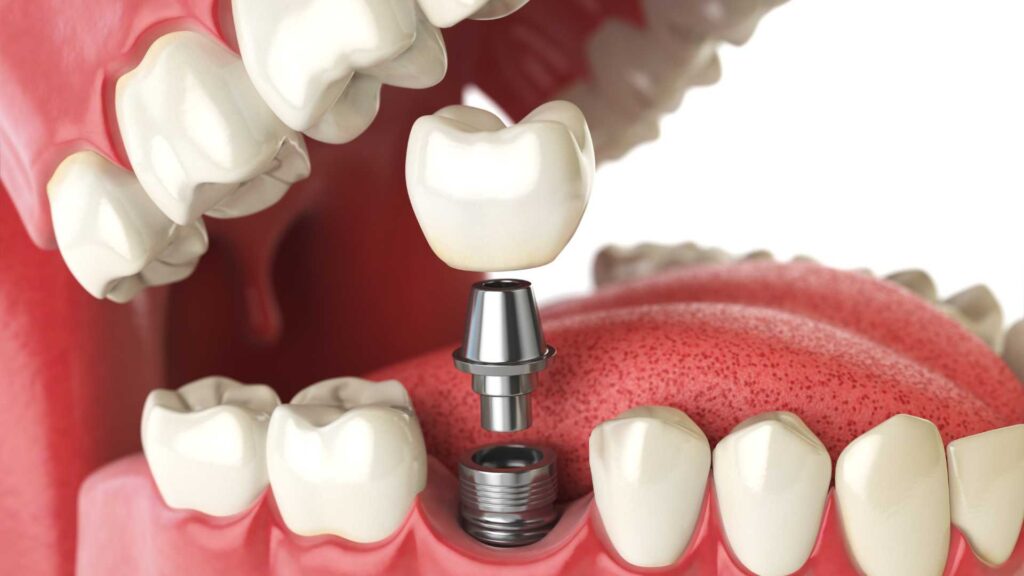
Dental Implant vs. Bridge: Which is better for missing teeth?
When it comes to restoring your smile after tooth loss, you may find yourself at a crossroads between dental implants and bridges. Both options have their advantages, but understanding which is best for you can be a daunting task. This guide aims to demystify these dental solutions, offering insights that cater to your needs as a dental patient or oral health enthusiast.
Understanding Dental Implants and Bridges
Dental implants and bridges are two popular options for replacing missing teeth. While both serve the same purpose, they do so in different ways. Dental implants involve inserting a titanium post into the jawbone to act as a tooth root, before capping it with a crown. In contrast, dental bridges rely on surrounding teeth to anchor an artificial tooth in place.
Implants are renowned for their durability and natural feel, mimicking the function of real teeth. Bridges, on the other hand, are often less invasive initially and can be more budget-friendly. This section will lay the foundation for our deeper exploration into the specifics of each option.
Cost Analysis Dental Implants vs Bridges
One of the first aspects most patients consider is cost. Dental implants typically come with a higher initial price tag compared to bridges. This is due to the complexity of the procedure and the materials used. However, it’s important to consider long-term costs as well. Implants tend to last longer, potentially saving you money on future dental work.
Bridges, while cheaper upfront, may need replacement every 10-15 years. This can add up over time, making them a potentially more expensive option in the long run. Financial considerations are crucial, but they should be weighed alongside other factors like longevity and comfort.
Insurance coverage can also play a role in decision-making. Some policies may cover bridges more readily than implants, so it’s worth consulting with your provider to understand your benefits.
Procedure and Recovery Time
The process for dental implants is more involved, often requiring multiple appointments over several months. The procedure starts with inserting the implant into the jawbone, followed by a healing period allowing the bone to integrate with the post, known as osseointegration. Once healed, a crown is placed on the post.
Bridges are quicker to install. In most cases, they can be completed in just two visits. The first visit involves preparing the adjacent teeth and taking impressions, while the second visit focuses on fitting the bridge.
Recovery times also differ. Implant procedures may require a recovery period of several months, during which the patient must care for the surgical site. Bridges require less downtime, typically allowing patients to return to normal activities much sooner.
Long-term Durability and Maintenance
Dental implants boast impressive longevity, often lasting a lifetime when cared for properly. Their stability and integration into the jawbone make them a reliable option for tooth replacement. Routine dental hygiene and regular check-ups are usually sufficient to maintain implants.
Bridges have a shorter lifespan, generally requiring replacement every decade or so. Because they rely on surrounding teeth for support, they can sometimes lead to additional wear or decay in those teeth. This requires diligent oral hygiene and potential additional dental work.
The maintenance of both options is critical. Regular flossing, brushing, and dental visits ensure that your replacement teeth and overall oral health remain in optimal condition.
Aesthetics and Functionality
Both dental implants and bridges offer aesthetic benefits, but implants often come closer to replicating the look and feel of natural teeth. They provide a seamless appearance, blending effortlessly with your existing teeth. This can be particularly important for front teeth or visible areas of your smile.
Bridges are aesthetically pleasing as well, but may not offer the same natural feel as implants. The presence of supporting structures can sometimes affect the sense of natural tooth movement, though this is often subtle.
Functionality is another key factor. Implants typically restore full chewing power, allowing patients to eat confidently without restrictions. Bridges offer good functionality as well, but may not match the strength of implants.
Benefits and Drawbacks of Each Option
Dental implants provide numerous benefits, including longevity, natural appearance, and full functionality. However, their higher initial cost and longer recovery time can be drawbacks for some patients.
Bridges, while quicker and initially more affordable, may require more maintenance and offer less durability. Their reliance on surrounding teeth can also be a disadvantage if those teeth are not strong or healthy.
Considering these pros and cons, it’s important to align your choice with your lifestyle, budget, and long-term dental goals.
Who is a Suitable Candidate for Dental Implants and Bridges?
Candidacy for dental implants often depends on bone density and overall oral health. Patients with sufficient jawbone and no significant health issues are ideal candidates. Those with compromised bone structure may require additional procedures, like bone grafting, before implants can be placed.
Bridges are often a suitable alternative for those who may not qualify for implants, such as individuals with certain health conditions or inadequate bone density. They offer a viable solution without the need for invasive surgery.
Consultation with a denist in Jaipur is essential to determine which option best suits your needs. They can evaluate your oral health and discuss the risks and benefits of each option.
Making an Informed Decision for Your Oral Health
When considering dental implants versus bridges, it’s crucial to weigh all factors carefully. Both options can restore functionality and aesthetics to your smile, but the right choice depends on your specific circumstances.
By understanding the costs, procedures, and long-term implications, you can make an informed decision that supports your oral health goals. Remember, seeking advice from a qualified dental professional is always recommended
In conclusion, choosing between dental implants and bridges involves considering multiple factors. By understanding the benefits and drawbacks of each, you can make a decision that enhances your oral health and smile.
Frequently Asked Questions
How long do dental implants and bridges last?
- Dental implants can last a lifetime with proper care, while bridges typically last about 10-15 years before needing replacement.
Are dental implants painful?
The implant procedure involves minor surgery, but discomfort is usually manageable with pain relief and proper post-operative care.
Can I get dental implants if I have gum disease?
Gum disease can affect the success of implants, but treatment and stabilization of the condition are possible before proceeding with implants.
How do I care for my dental implants or bridge?
Maintain good oral hygiene by brushing, flossing, and visiting your dentist regularly to ensure the longevity of your dental work.
Recent Blog
- दांतो में कीड़े कैविटी – लक्षण, कारण, इलाज़ एवं उपचार
- RCT कराने के बाद में क्या ख्याल रखना ज़रूरी हैं Root Canal Precautions in Hindi
- Single Tooth Implant Cost in India – YouDent Hospital
- Everything You Need to Know About Front Tooth Implants and Their Cost
- Understanding Teeth Arrangement and Types of Teeth

Dr. Rajesh Gupta
+91 08233792911
Mon – Sat: 09:00 AM - 08:00 PM, Sun - Off
Shop no - 4, Metro Station, New Sanganer Rd, opposite Pillar No. 84, Jaipur, Rajasthan 302019